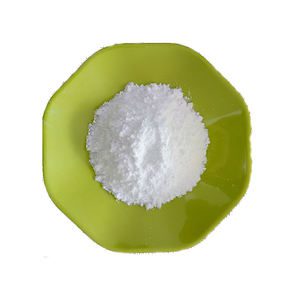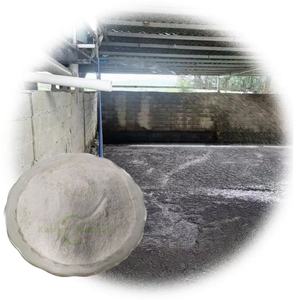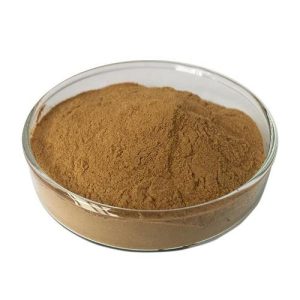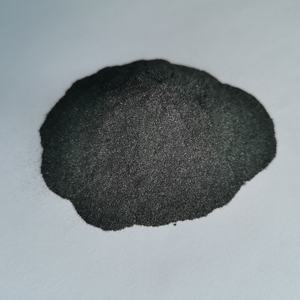Professional and high-quality metal alloys, ceramic products and concrete additives | RBOSCHCO
(Introduction to Tantalum and Tantalum Carbide TaC)
The most corrosion-resistant metal
Tantalum has excellent chemical properties and high corrosion resistance, and does not react to hydrochloric acid, concentrated nitric acid and "aqua regia", whether under hot or cold conditions.
Tantalum will not be corroded by concentrated sulfuric acid below 150℃, but only above this temperature. In 175℃ concentrated sulfuric acid for one year, the corroded thickness is 0.0004 mm. If tantalum is immersed in 200℃ sulfuric acid for one year, the surface layer is only damaged by 0.006 mm. The corrosion rate increases at 250℃, and the corrosion thickness is 0.116 mm per year. At 300℃, the corrosion rate is even faster, and the surface is corroded by 1.368 mm after soaking for one year. The corrosion rate in fuming sulfuric acid (containing 15% SO) is more serious than that in concentrated sulfuric acid, and the corrosion thickness of the surface is 15.6mm when soaked in the solution at 130℃ for 1 year.
Tantalum can also be corroded by phosphoric acid at high temperature, but the reaction generally occurs above 150℃. When soaked in 85% phosphoric acid at 250℃ for one year, the surface is corroded by 20 mm. In addition, tantalum can be rapidly dissolved in a mixture of hydrofluoric acid and nitric acid. It can also be dissolved in hydrofluoric acid. But tantalum is more afraid of strong alkali. In caustic soda solution of 40% concentration at 110℃, tantalum will be dissolved quickly in potassium hydroxide solution of the same concentration, as long as 100℃.
In addition, general inorganic salts generally cannot corrode tantalum below 150℃. The experimental results show that tantalum has no effect on alkali solution, chlorine, bromine water, dilute sulfuric acid and many other agents at room temperature, but only under the action of hydrofluoric acid and hot concentrated sulfuric acid. Such a situation is relatively rare in metals.
The substance with the highest melting point
Tantalum-hafnium carbide alloy actually refers to tetratantalum-hafnium carbide compound, which has the highest melting point among the known compounds.
It can be considered to be composed of two binary compounds, tantalum carbide (melting point 3983 oC) and hafnium carbide (melting point 3928oC). The melting point is as high as 4215℃.
What is Tantalum Used For?
Tantalum is one of the rare metal mineral resources, and it is an indispensable strategic raw material for the development of electronic industry and space technology.
Tantalum and niobium have similar physical and chemical properties, so they co-exist in natural minerals. Whether it is tantalum ore or niobium ore depends on the content of tantalum and niobium in the mineral. It is called niobium ore when niobium content is high, and tantalum ore when tantalum content is high.
Tantalum is mainly used in the production of electronic components and alloys. The occurrence form and chemical composition of tantalum and niobium minerals are complex, in addition to tantalum and niobium, they often contain rare earth metals, titanium, zirconium, tungsten, uranium, thorium and tin. The waste residue of tin smelting contains tantalum, which is also an important resource of tantalum. It has been identified that the world's tantalum reserves (in terms of tantalum) is about 134000 short tons, with Zaire in the first place.
Capacitors are the main final consumption area of tantalum, accounting for about 60% of the total consumption. The United States is the country with the largest consumption of tantalum, with consumption reaching 500 tons in 1997, of which 60% is used in the production of tantalum capacitors. Japan is the second largest consumer of tantalum, with a consumption of 334 tons.
At the beginning of the 21st century, with the rapid development of capacitor production, the market is in short supply. It is estimated that the world's production of tantalum capacitors will reach 250 million pieces, requiring consumption of 1000 tons of tantalum. According to the statistics of the US Geological Survey, the natural reserves of tantalum in the earth's crust are 150000 tons, and the recoverable reserves are more than 43000 tons. In 2004, the world's tantalum mining volume was 1510 tons, of which Australia 730tons, Mozambique 280tons, Brazil 250tons, Canada 69 tons and Congo 60 tons.
There are a lot of tantalum resources associated with the rich niobium deposits in the world. Among them, the tantalum resources of the Gadar niobium and tantalum mine in southern Greenland reached 1 million tons. Second, the west has begun to use large amounts of tin slag containing less than 3 per cent of Ta2O5.
In addition, the research and utilization of its substitutes have also developed rapidly, such as aluminum and ceramics, which could replace tantalum in the field of capacitors; or silicon, germanium, cesium in the use of electronic instruments to make rectifiers.
Tantalum Carbide TaC Powder Price
The price is influenced by many factors including the supply and demand in the market, industry trends, economic activity, market sentiment, and unexpected events.
If you are looking for the latest TaC powder price, you can send us your inquiry for a quote. (tech@nanotrun.com)
Tantalum Carbide TaC Powder Supplier
RBOSCHCO is a trusted global chemical material supplier&manufacturer with over 12-year-experience in providing super high-quality chemicals and nanomaterials. The company export to many countries including the USA, Canada, Europe, UAE, South Africa, Tanzania, Kenya, Egypt, Nigeria, Cameroon, Uganda, Turkey, Mexico, Azerbaijan, Belgium, Cyprus, Czech Republic, Brazil, Chile, Dubai, Japan, Korea, Vietnam, Thailand, Malaysia, Indonesia, Australia, Germany, France, Italy, Portugal, etc.
As a leading nanotechnology development manufacturer, RBOSCHCO dominates the market. Our professional work team provides perfect solutions to help improve the efficiency of various industries, create value, and easily cope with various challenges.
If you are looking for TaC powder, please send an email. (tech@nanotrun.com)
(Introduction to Tantalum and Tantalum Carbide TaC)







